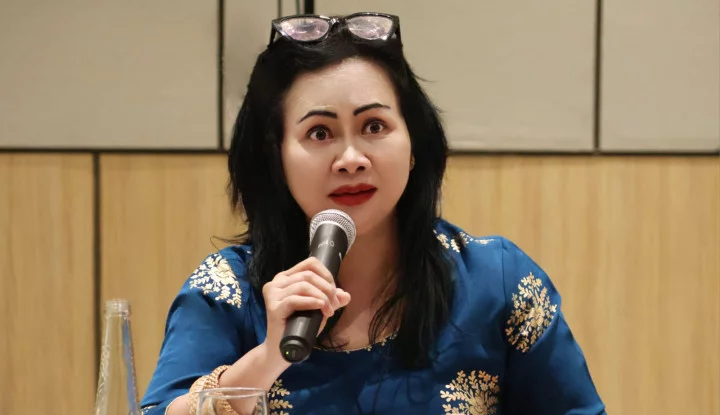
NGOCSTIP – International Women’s Day is celebrated every March 8th, and it serves as a powerful reminder that women’s voices must be heard globally. Nukila Evanty, the Executive Director of Women Working Group (WWG), believes this day calls for women to speak up for gender equality. Women must continue advocating for their rights, which are fundamental human rights.
Nukila Evanty highlights concerning data about the struggles women face in Indonesia. According to data from the Ministry of Women Empowerment and Child Protection (KemenPPPA), 9.68% of Indonesian women still live below the poverty line. This figure is higher than the 9.40% of men living in poverty.
The situation is especially difficult for women in poor families, as their human resources are often underutilized. For example, when a fisherman cannot bring in fish, the wife and children, who rely on him, suffer even more.
“Read about: From Awareness to Action: Crucial Educational Resources on Human Trafficking”
Data from the Online Protection Information System for Women and Children (SIMFONI PPA) reveals that many cases of human trafficking (TPPO) involve women and children. Women face difficulty finding work, and many are enticed by job offers abroad. Desperate to support their families, they often take informal routes to other countries.
However, these women become vulnerable to exploitation and fall into the hands of criminal syndicates. Many are deceived and trapped in human trafficking rings. Women with limited knowledge become easy targets for these illegal operations.
The gender wage gap remains significant in Indonesia. According to data from the Central Statistics Agency (BPS) in 2022, the average salary for women was Rp2,593,709 per month, far below the pay of their male counterparts.
Moreover, the unemployment rate among women is also troubling. In August 2024, the unemployment rate for women stood at 4.92%. The BPS data further reveals that women are more likely to want a job but are unable to find one compared to men.
“Read more: How to Keep Your Bones and Joints Healthy as You Age”
Nukila points out the disturbing rise in gender-based violence. According to the National Commission on Violence Against Women (Komnas Perempuan), there were 401,975 cases of violence against women in 2023. The violence includes physical, sexual, and psychological abuse, as well as domestic violence. Women with disabilities, especially those with multiple disabilities, face the highest rates of violence.
She is also alarmed by the high maternal and infant mortality rates, which rank among the top three in Southeast Asia. The number of maternal deaths reached 4,005 in 2022, increasing to 4,129 in 2023, according to the Ministry of Health’s Maternal Perinatal Death Notification (MPDN).
Nukila stresses that women’s issues often stem from violence, discrimination, and unequal opportunities. The effects are far-reaching, impacting everything from health problems like maternal deaths to safety concerns at work, where sexual harassment remains common.
Women’s education often gets deprioritized, especially with limited scholarships available, particularly due to age restrictions. Women in informal sectors receive low wages and have little access to social protections.
Additionally, land grabs and the rapid growth of extractive industries threaten indigenous women and girls. In the past, these women had access to clean water and resources from their land. Today, pollution from industrial activities has made their lands uninhabitable, leaving them vulnerable.
Nukila calls on the government to lead the charge in strengthening women’s rights and empowerment. Economic empowerment should be a priority to ensure access to health, education, and decent work opportunities for women. Empowering women means boosting family prosperity and contributing to national economic growth.
When a woman becomes a victim of human trafficking, she doesn’t just ruin her own life. Her family and the country as a whole suffer deeply. We must eliminate all forms of discrimination and stigma against women and protect them from violence. On International Women’s Day 2025, Nukila Evanty’s message is clear: we must prioritize women’s prosperity for the well-being of families and society. Gender equality is not just a women’s issue; it’s a human rights issue that affects everyone.